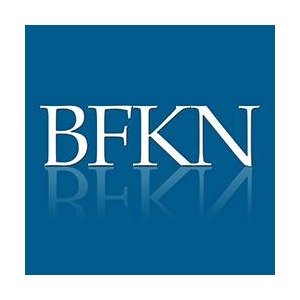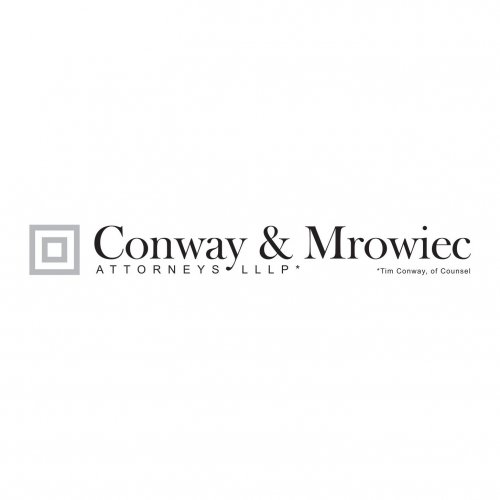Best Tax Increment Financing Lawyers in Illinois
Share your needs with us, get contacted by law firms.
Free. Takes 2 min.
Or refine your search by selecting a city:
List of the best lawyers in Illinois, United States
About Tax Increment Financing Law in Illinois, United States
Tax Increment Financing (TIF) is an economic development tool used by local governments throughout Illinois to encourage redevelopment and investment in designated areas. When an area is declared a TIF district, the property tax base at that moment is frozen. Any increase in property tax revenue resulting from rising property values is set aside in a special fund to finance public improvements and stimulate further development within the district. This approach aims to eliminate blight, encourage new private investment, create jobs, and expand the local tax base without raising property tax rates.
Illinois has one of the most active TIF programs in the United States, with regulations set forth by state law. TIF districts are commonly used in both urban and suburban settings, supporting projects like infrastructure upgrades, commercial revitalization, and affordable housing developments.
Why You May Need a Lawyer
Navigating Tax Increment Financing in Illinois can be complex, involving multiple parties, strict statutory requirements, and significant public oversight. You may need a lawyer if you are:
- A property owner or developer seeking to benefit from TIF-funded incentives and need guidance on eligibility or the application process.
- Concerned about the creation or boundaries of a proposed TIF district that may affect your property or business.
- A municipal official or consultant needing advice on structuring or managing a TIF district in compliance with Illinois law.
- A business or resident challenging TIF decisions, such as the use of TIF funds or the extension of a TIF district’s lifespan.
- A taxpayer seeking transparency or wishing to understand how TIF affects local taxes and community services.
Lawyers experienced in TIF law can help negotiate redevelopment agreements, ensure proper procedural steps are taken, navigate regulatory approvals, and represent your interests in disputes or public hearings.
Local Laws Overview
The key legislation governing Tax Increment Financing in Illinois is the Tax Increment Allocation Redevelopment Act (65 ILCS 5/11-74.4-1 et seq.) as part of the Illinois Municipal Code. The Act outlines how municipalities can create TIF districts, the criteria an area must meet to qualify as a “blighted” or “conservation” area, and the procedures for adopting TIF ordinances.
Notable aspects of Illinois TIF law include:
- Public notice and hearing requirements before a TIF district can be established.
- Annual reporting of TIF activities and expenditures to the Illinois Comptroller.
- Restricted use of TIF funds for eligible costs such as land acquisition, site preparation, public works, and affordable housing.
- Typical TIF district lifespan of 23 years, with the possibility of extension under certain conditions.
- Oversight from a Joint Review Board made up of representatives from affected taxing districts.
Illinois law also provides mechanisms for challenging TIF decisions, monitoring compliance, and addressing concerns from affected residents or businesses.
Frequently Asked Questions
What is Tax Increment Financing?
Tax Increment Financing is a tool that allows municipalities to promote redevelopment in designated areas by capturing future increases in property tax revenue and dedicating them to fund improvements within the district.
How is a TIF district created in Illinois?
A municipality must conduct eligibility studies, hold public hearings, notify affected taxing bodies, and pass specific ordinances outlining the redevelopment plan and area boundaries.
Who manages TIF districts in Illinois?
Local governments, typically city councils or municipal boards, oversee TIF districts. They are responsible for compliance with the law, allocation of funds, and reporting.
What can TIF funds be used for?
TIF funds can finance public infrastructure, environmental remediation, property acquisition, demolition, site preparation, and certain private development costs if they are part of the approved redevelopment plan.
Can property owners or developers apply directly for TIF assistance?
Yes, eligible property owners or developers can apply for TIF benefits by working with the local municipality and negotiating a redevelopment agreement.
Does TIF increase my property taxes?
TIF does not increase property tax rates. Instead, it diverts new tax revenue from rising property values within the district to the TIF fund.
How long does a TIF district last?
Most TIF districts in Illinois exist for up to 23 years, although extensions are possible under certain circumstances.
How are local schools and other taxing bodies affected?
TIF districts freeze the amount of revenue these entities receive from the base value when the district is created. Any increases in tax revenue from redevelopment go to the TIF fund until the district ends.
Can TIF decisions be challenged?
Yes, affected parties may challenge TIF decisions through public hearings, administrative appeals, or, in some cases, litigation.
Where can I find out if an area is in a TIF district?
Municipalities are required to make TIF district information public, often on their websites or through the city or village clerk’s office.
Additional Resources
Several resources can help those seeking information or legal advice on Tax Increment Financing in Illinois:
- Illinois Department of Revenue - Offers guidance on the financial implications of TIF districts
- Illinois Comptroller’s Office - Publishes annual TIF reports from municipalities statewide
- Local municipal planning and development departments
- Illinois Municipal League - Provides information, best practices, and legislative updates on TIF
- Community economic development organizations and local chambers of commerce
Next Steps
If you need legal assistance related to Tax Increment Financing in Illinois, consider taking the following steps:
- Identify the specific issue or question you have regarding TIF, such as eligibility, compliance, or challenging a decision.
- Gather relevant documents, such as municipal notices, redevelopment agreements, and maps of the TIF district.
- Contact a lawyer with experience in municipal or TIF law. Be prepared to discuss the details of your situation and any deadlines that may apply.
- Visit your local municipal or county offices to review publicly available TIF materials that might inform your discussion with a lawyer.
- Stay informed about public hearings or meetings where TIF issues are addressed, as these are opportunities to ask questions and present concerns.
Having accurate information and reliable legal representation can help you understand your rights, evaluate the risks and benefits, and protect your interests in any matter related to Tax Increment Financing in Illinois.
Lawzana helps you find the best lawyers and law firms in Illinois through a curated and pre-screened list of qualified legal professionals. Our platform offers rankings and detailed profiles of attorneys and law firms, allowing you to compare based on practice areas, including Tax Increment Financing, experience, and client feedback.
Each profile includes a description of the firm's areas of practice, client reviews, team members and partners, year of establishment, spoken languages, office locations, contact information, social media presence, and any published articles or resources. Most firms on our platform speak English and are experienced in both local and international legal matters.
Get a quote from top-rated law firms in Illinois, United States — quickly, securely, and without unnecessary hassle.
Disclaimer:
The information provided on this page is for general informational purposes only and does not constitute legal advice. While we strive to ensure the accuracy and relevance of the content, legal information may change over time, and interpretations of the law can vary. You should always consult with a qualified legal professional for advice specific to your situation.
We disclaim all liability for actions taken or not taken based on the content of this page. If you believe any information is incorrect or outdated, please contact us, and we will review and update it where appropriate.
Browse tax increment financing law firms by city in Illinois
Refine your search by selecting a city.











